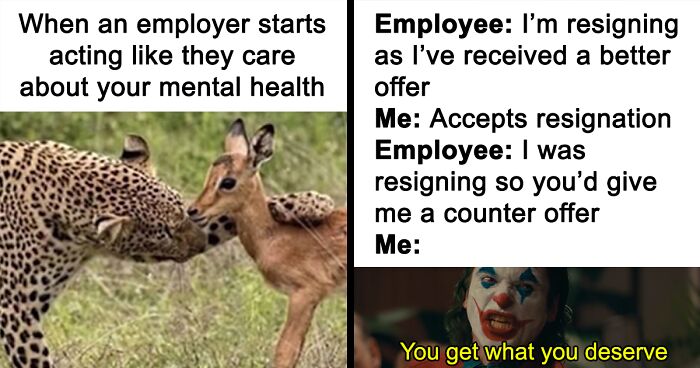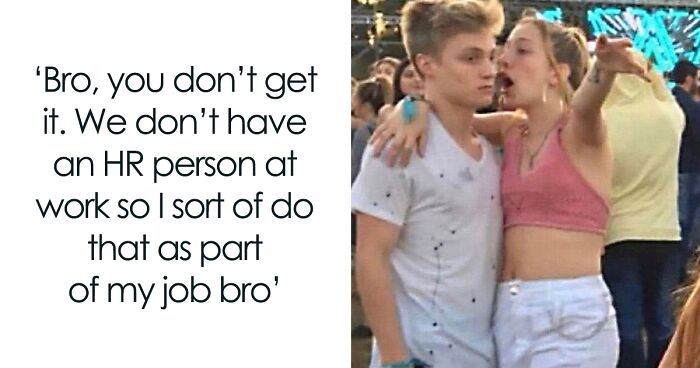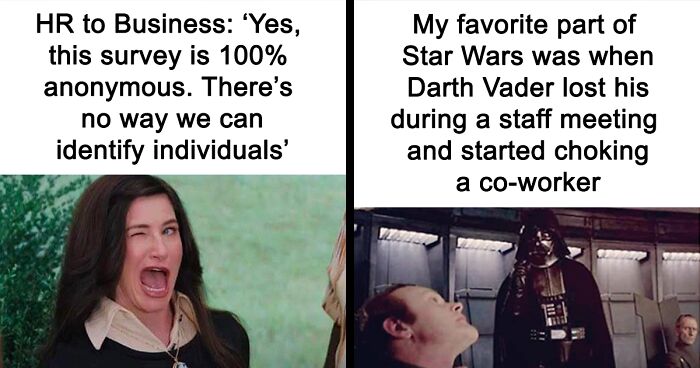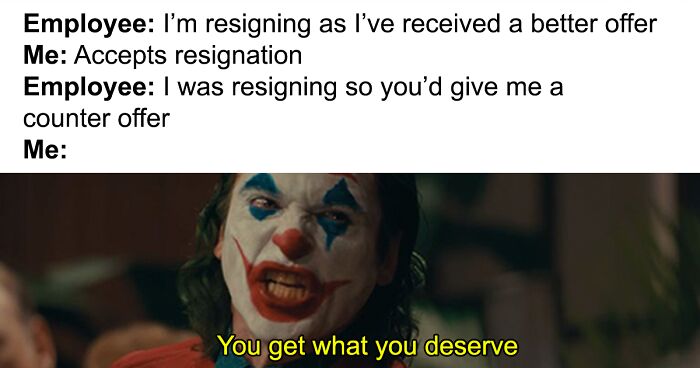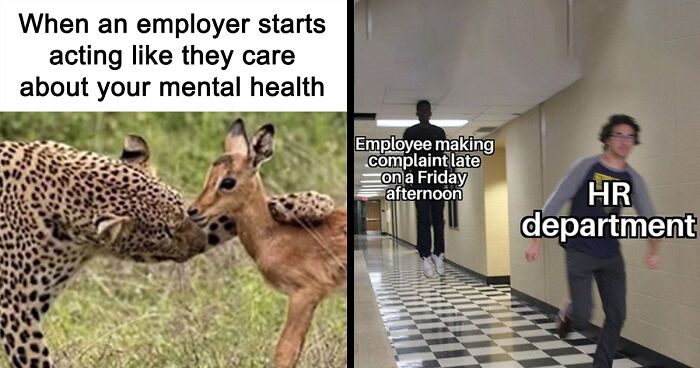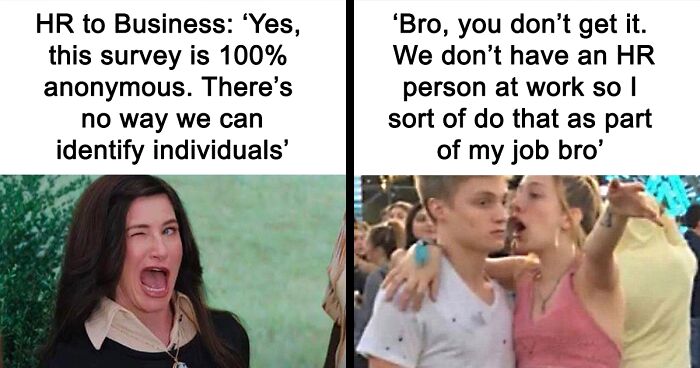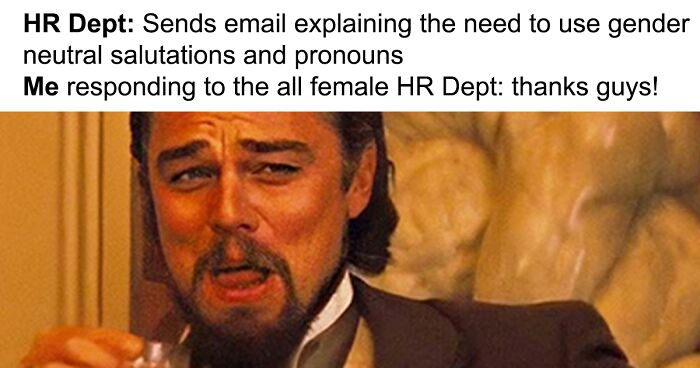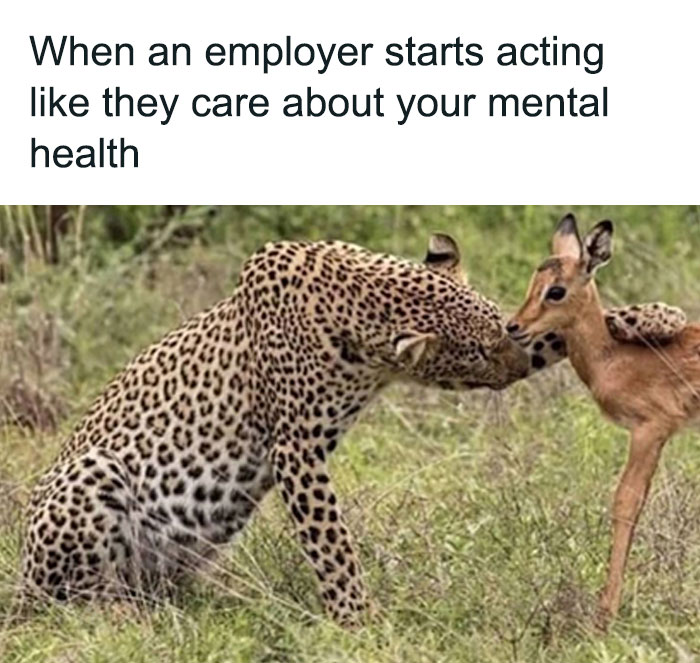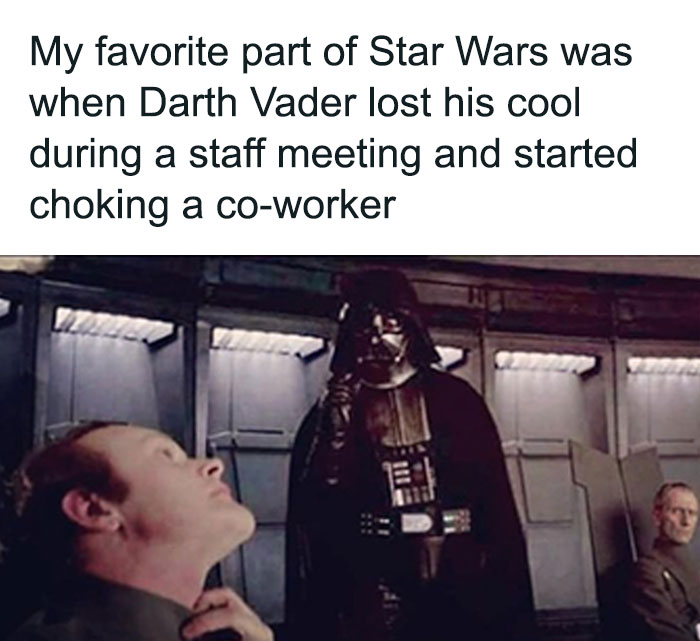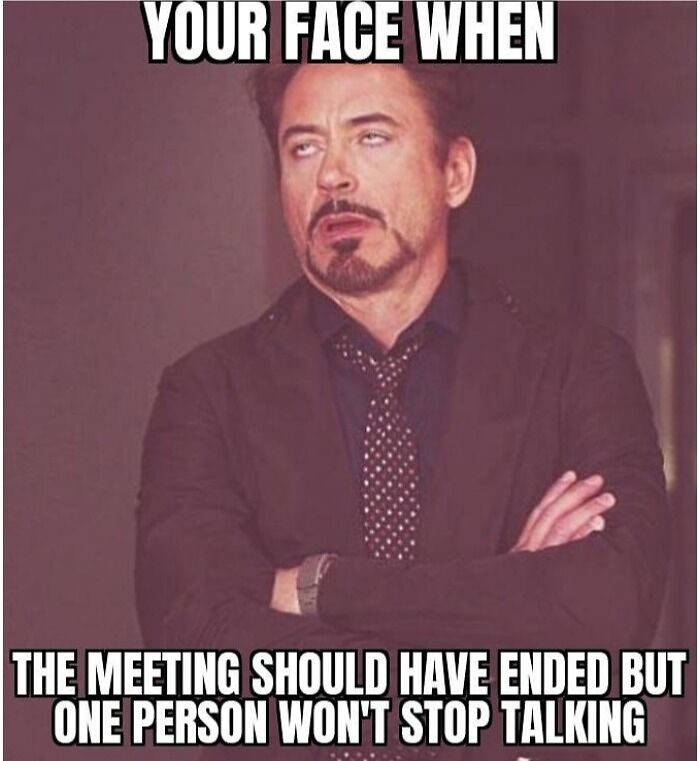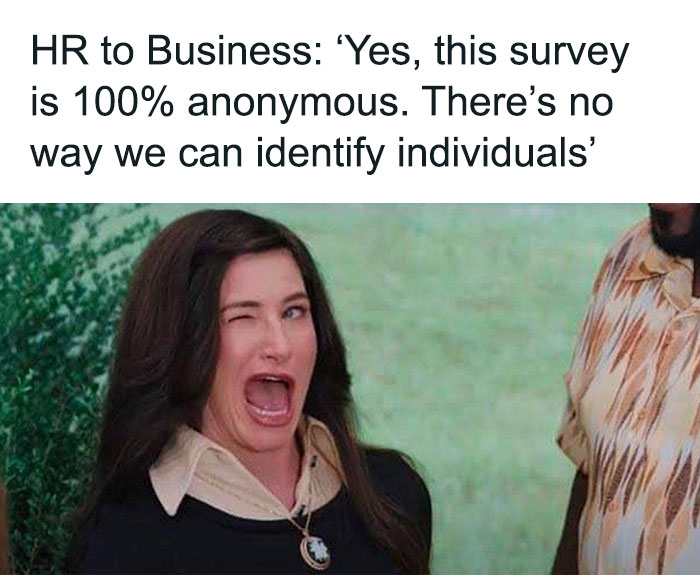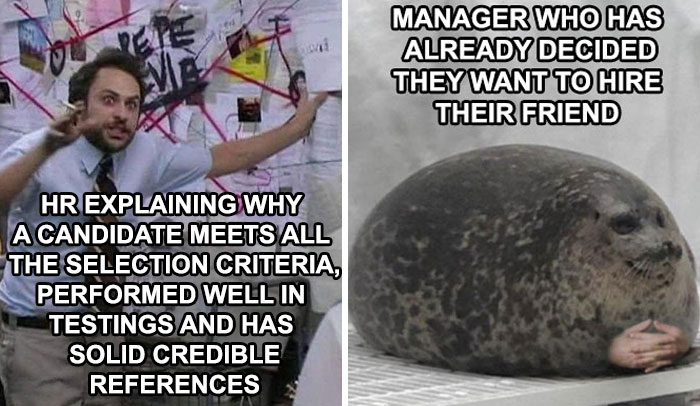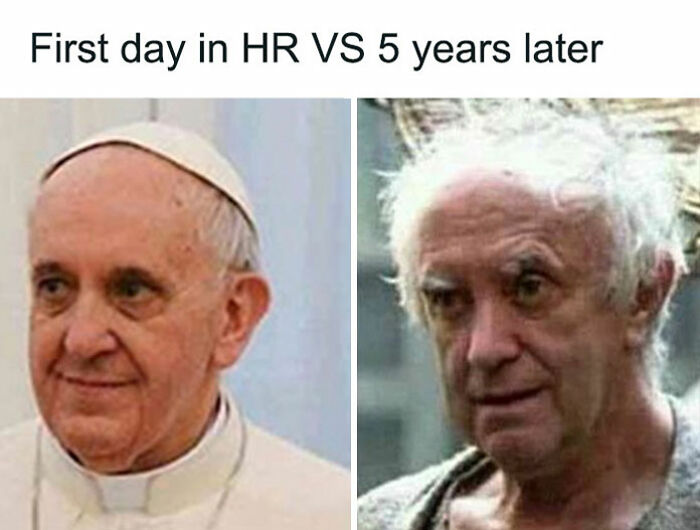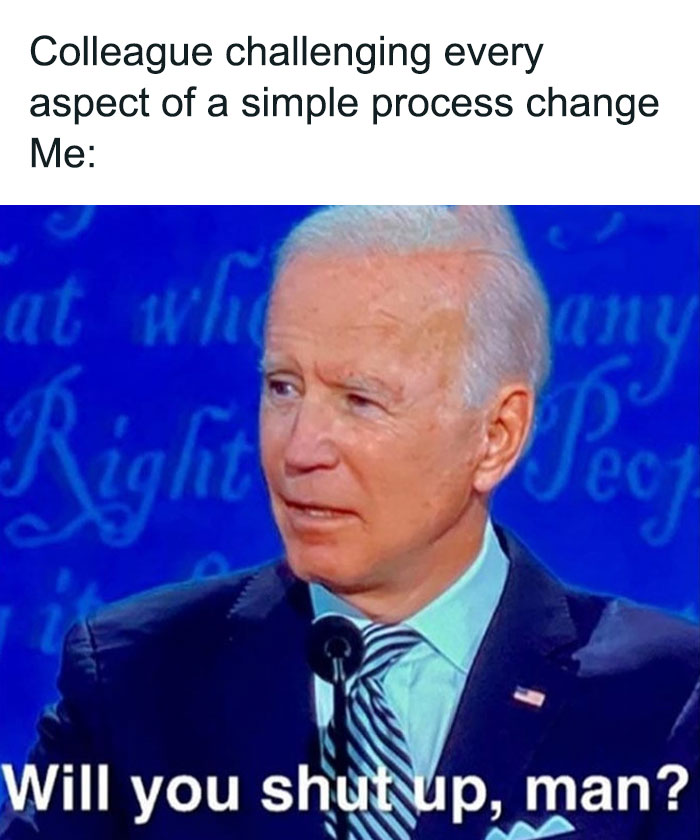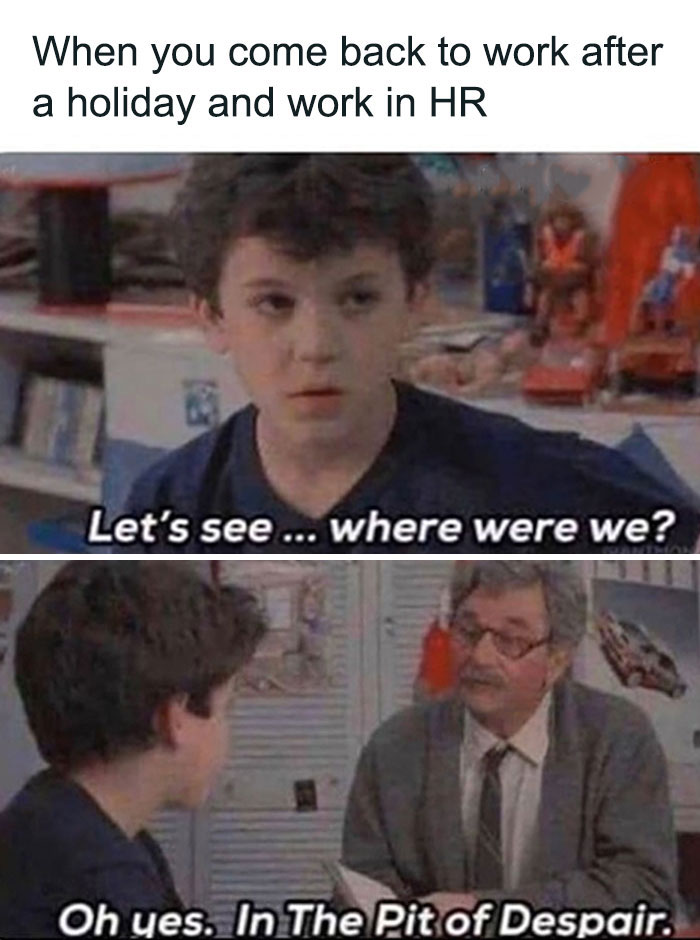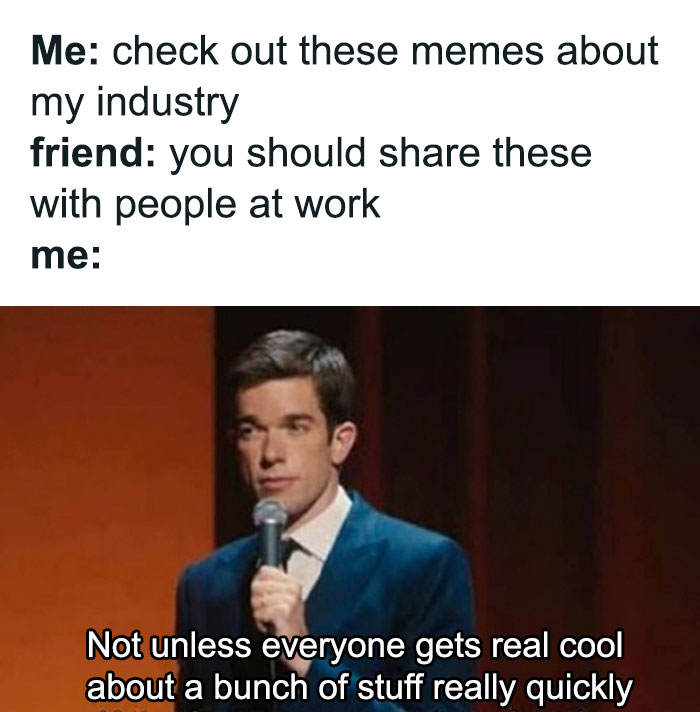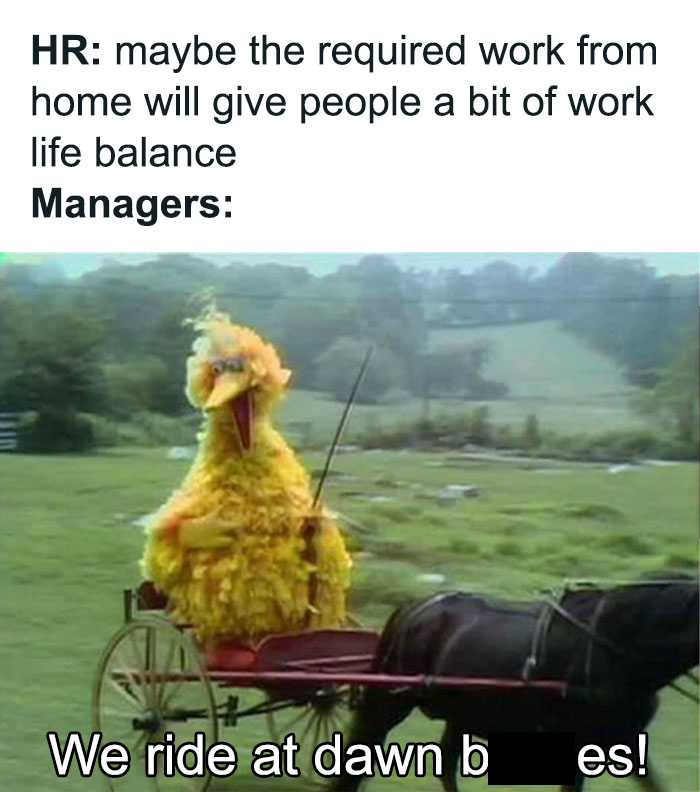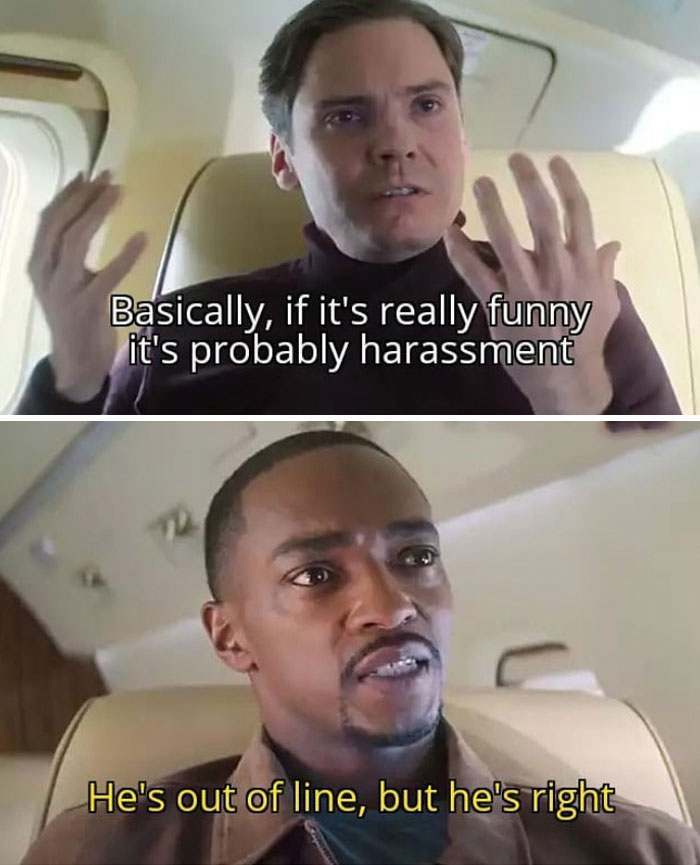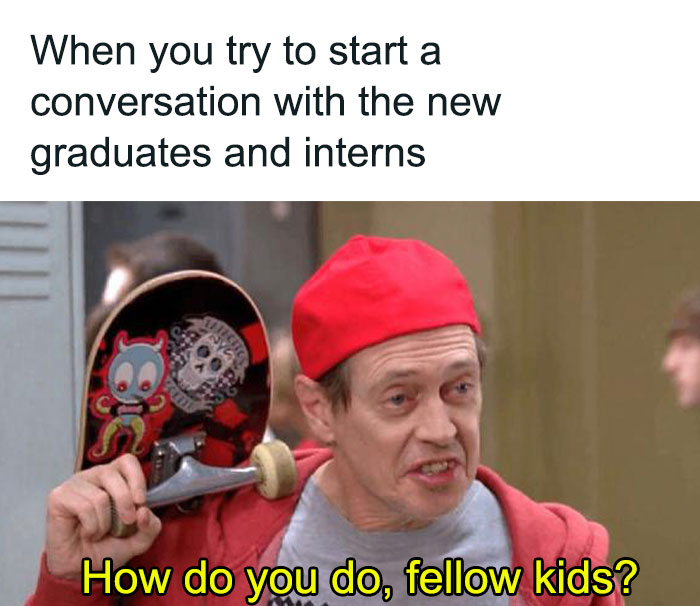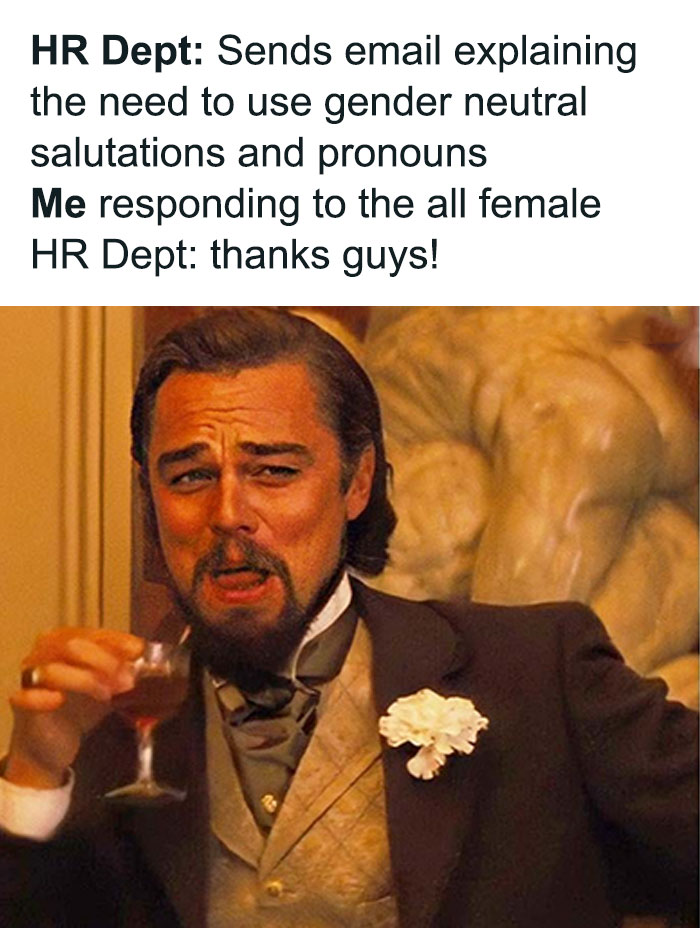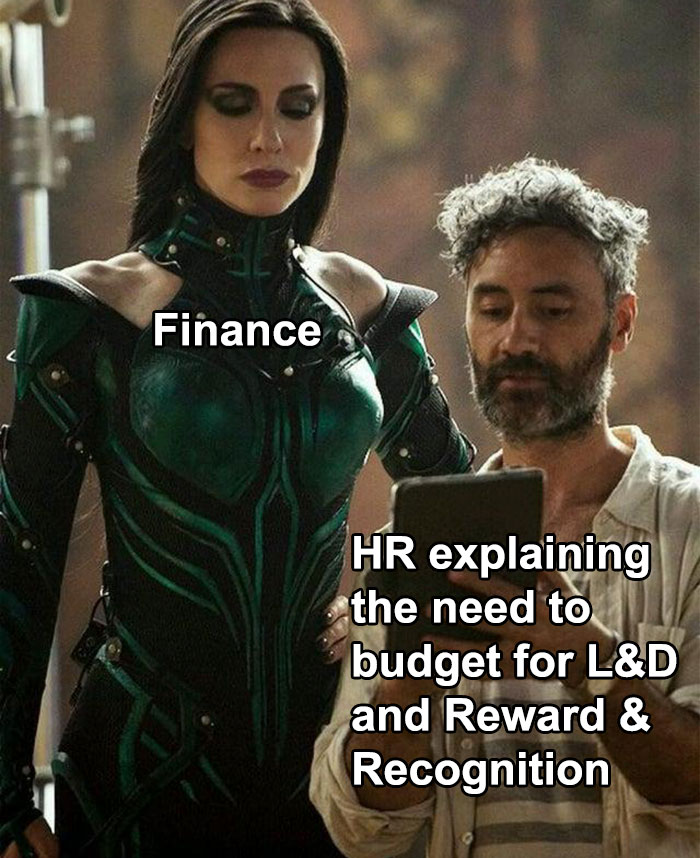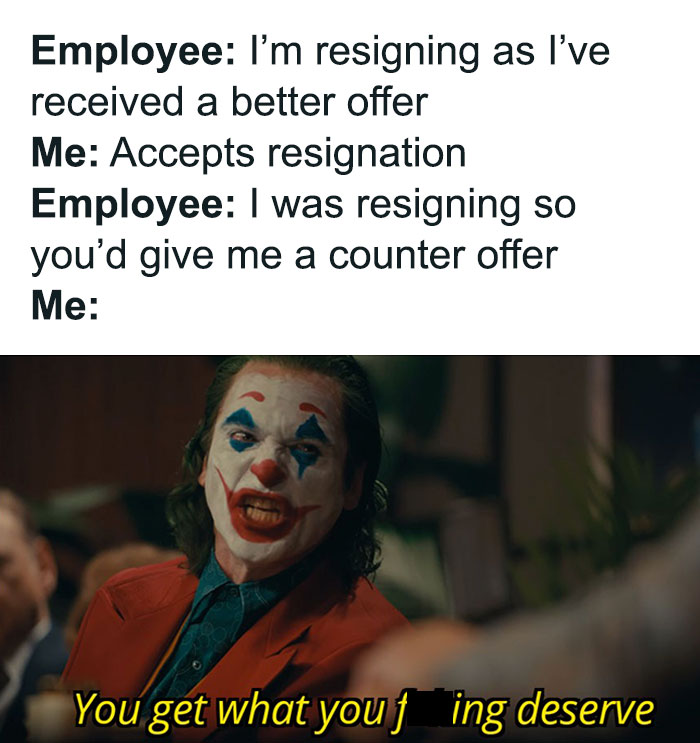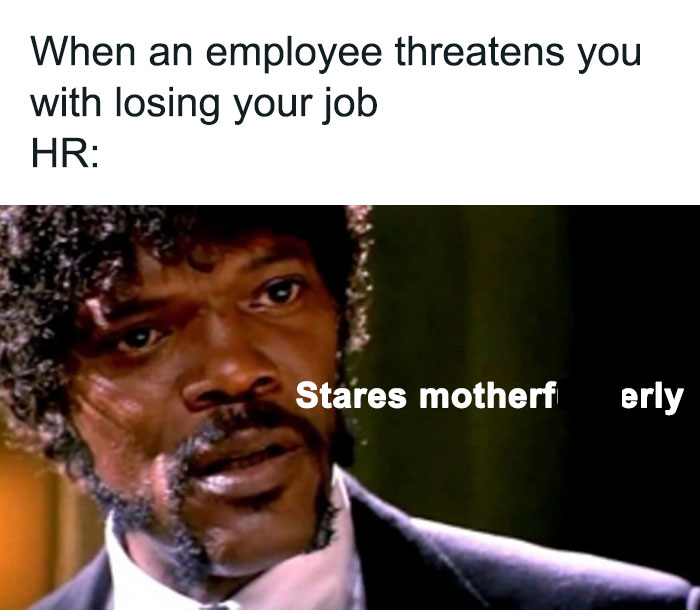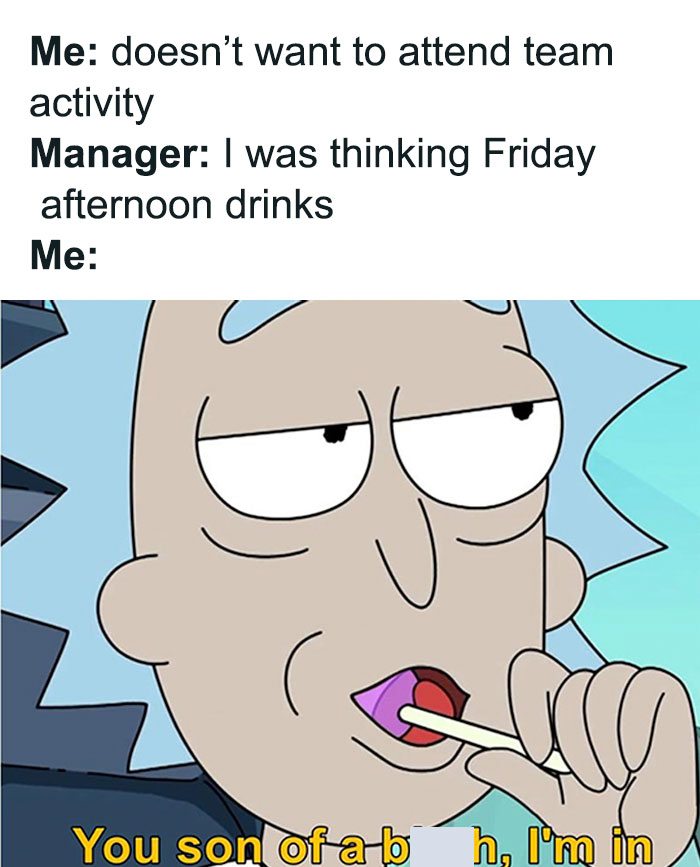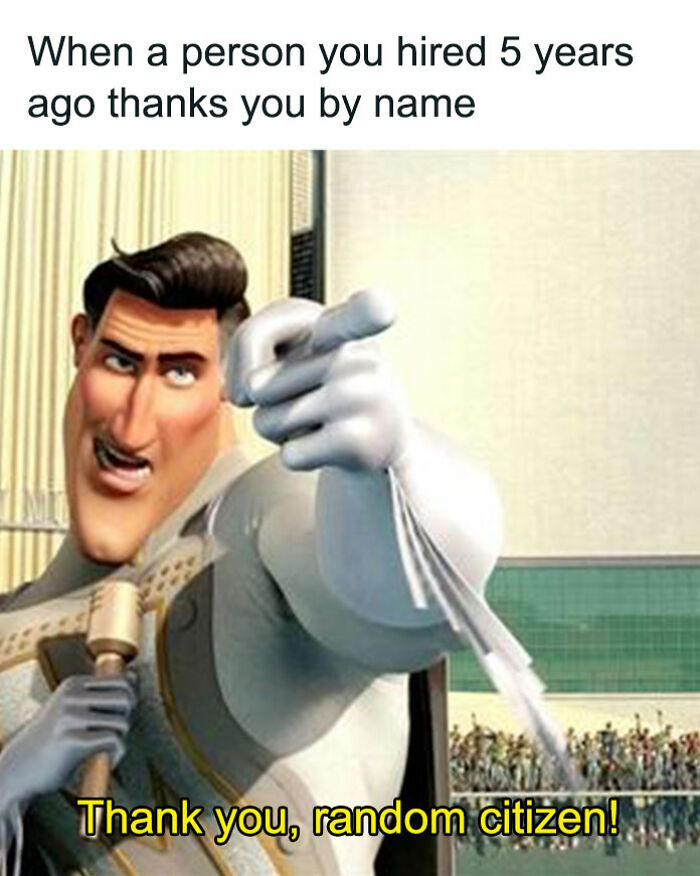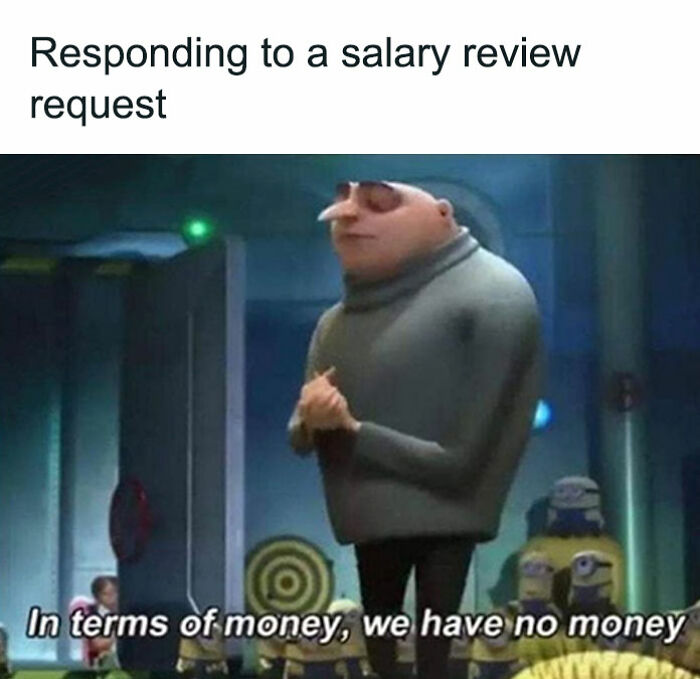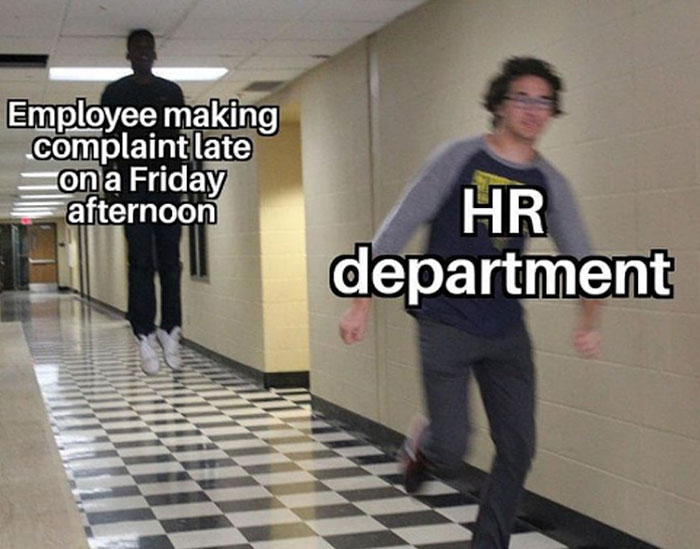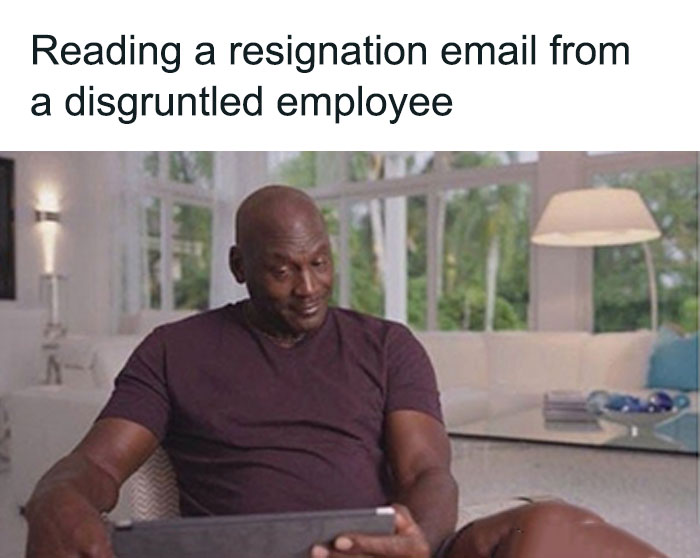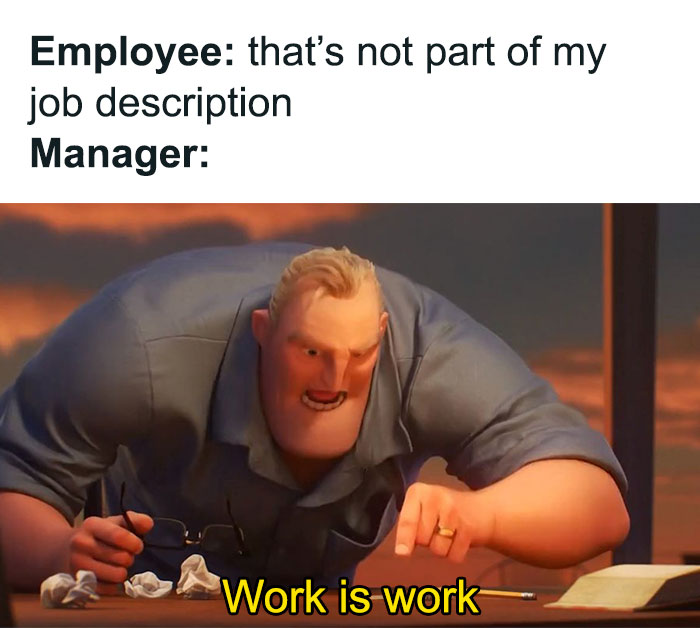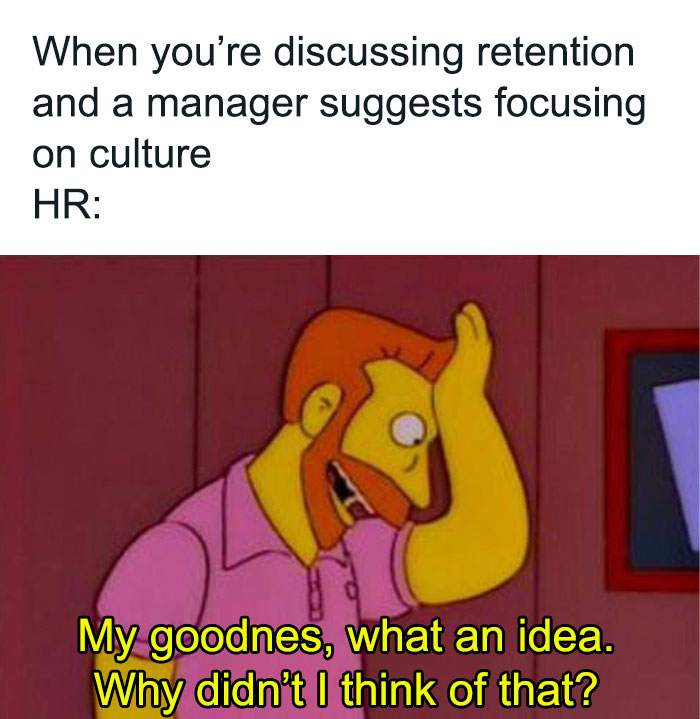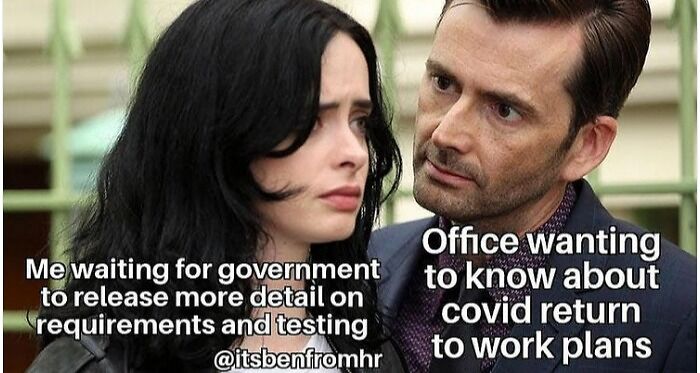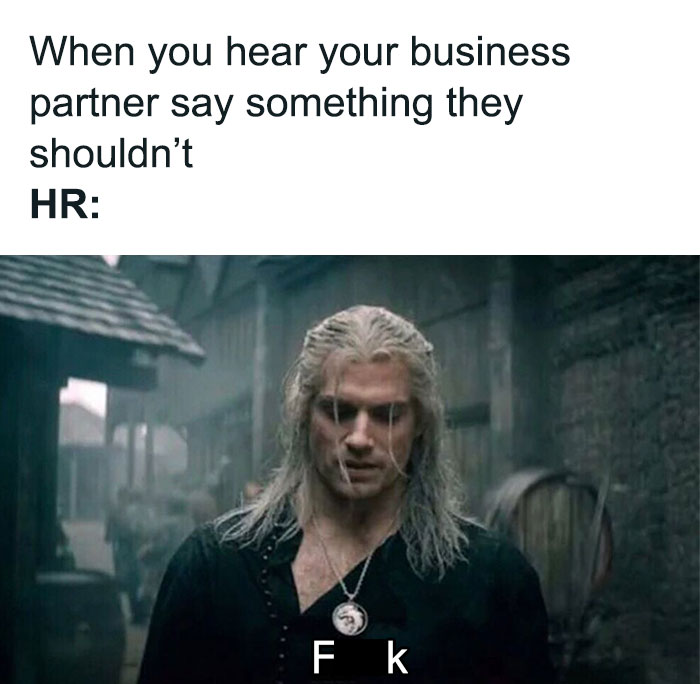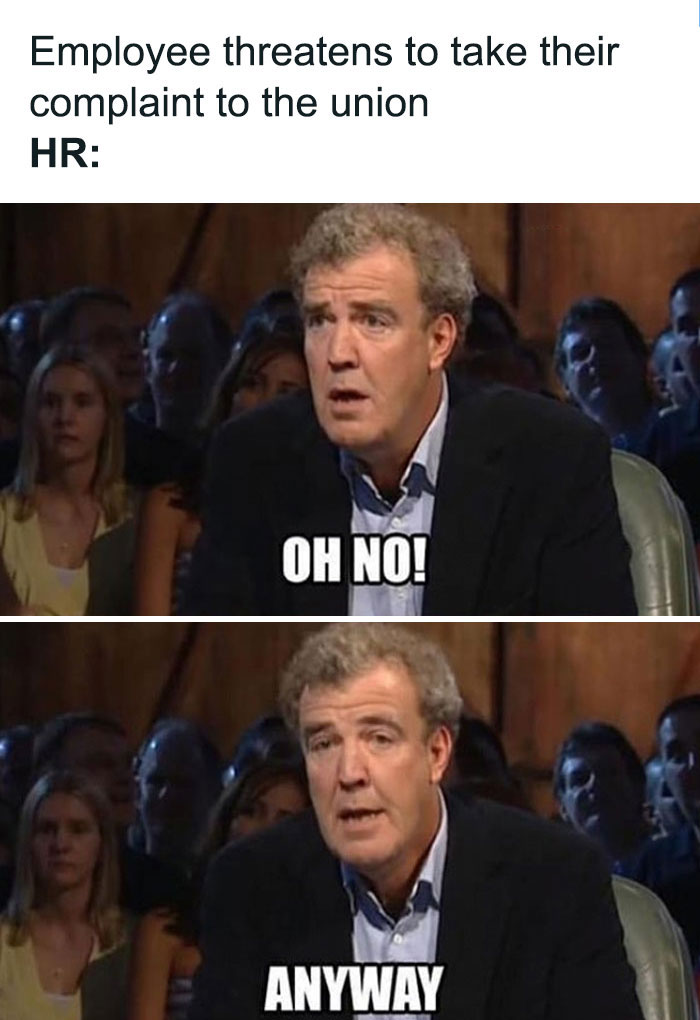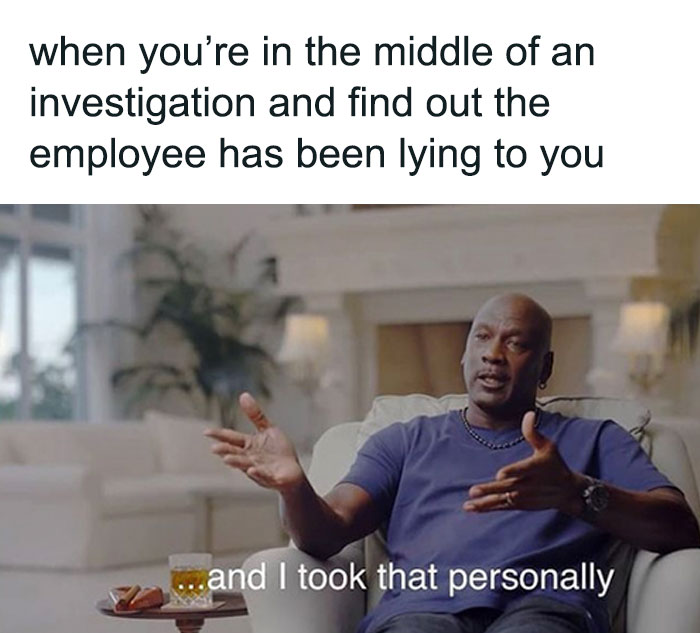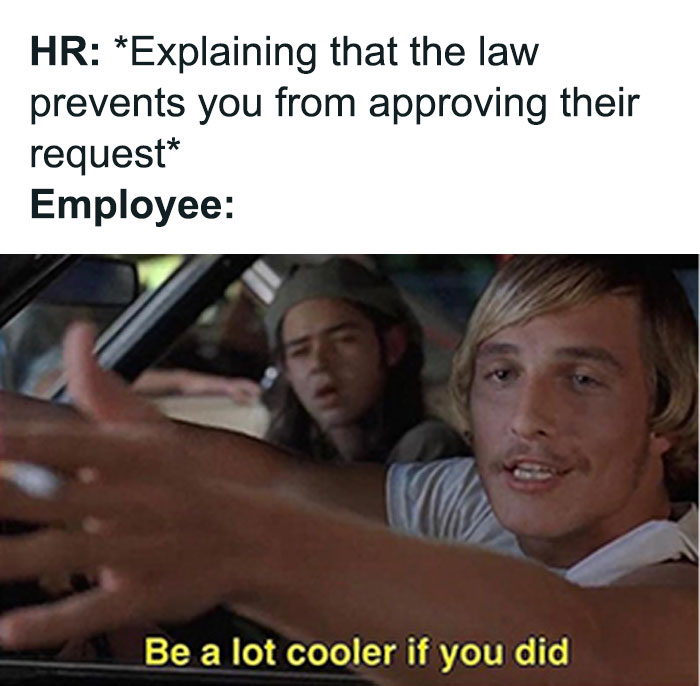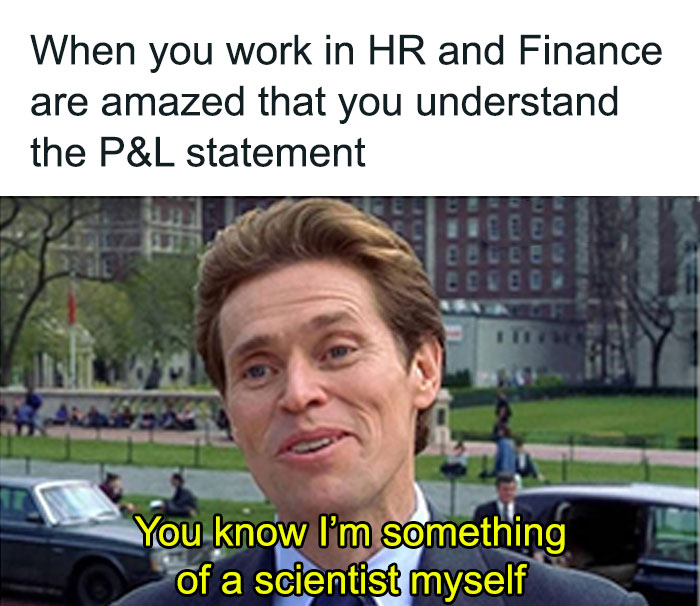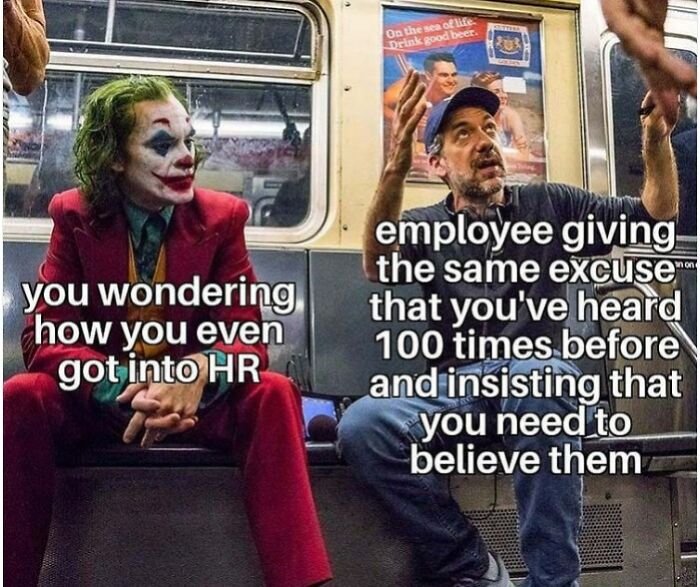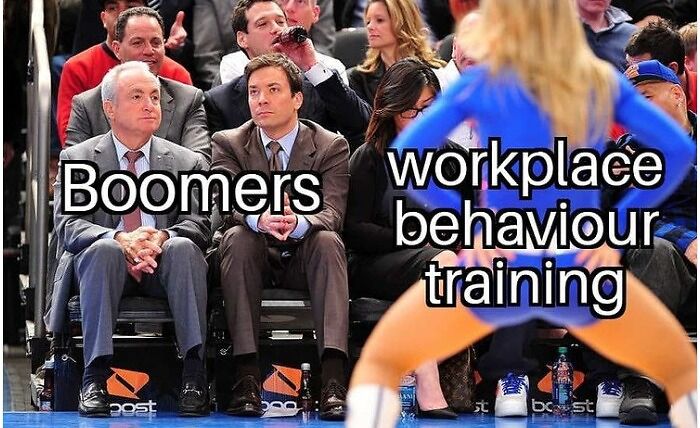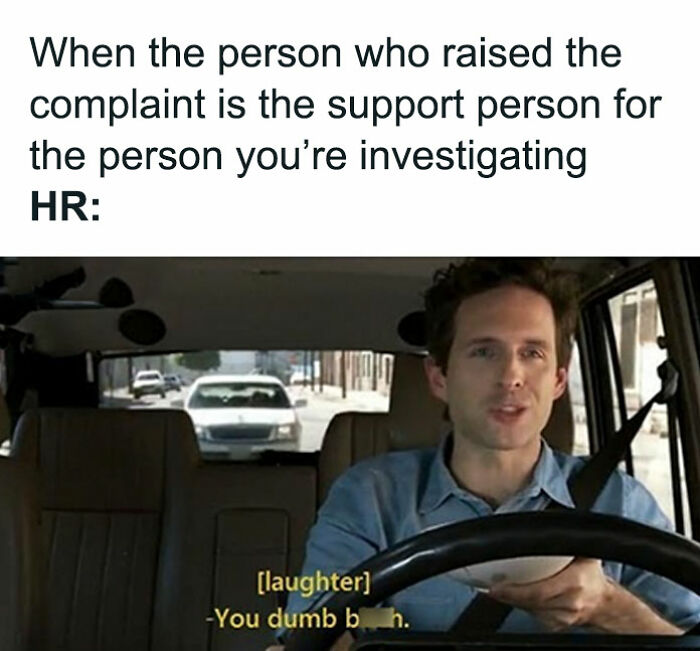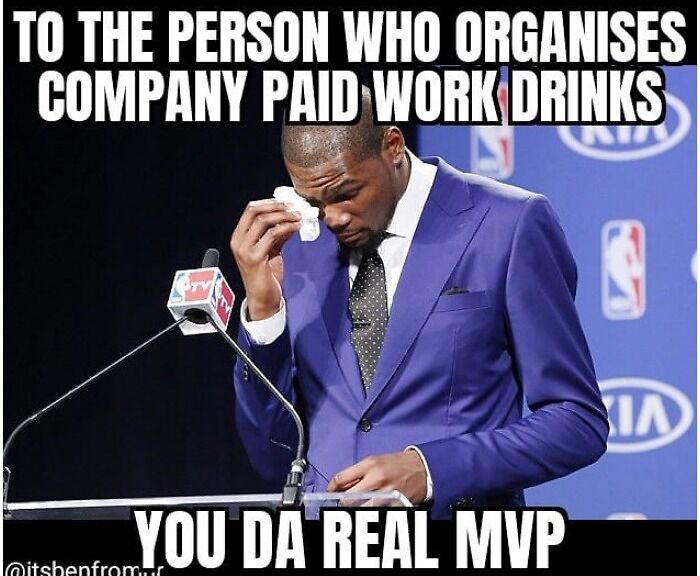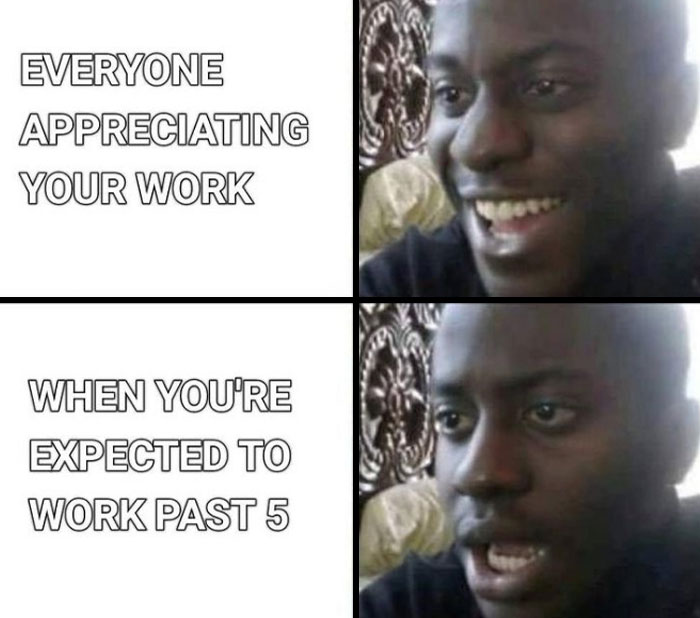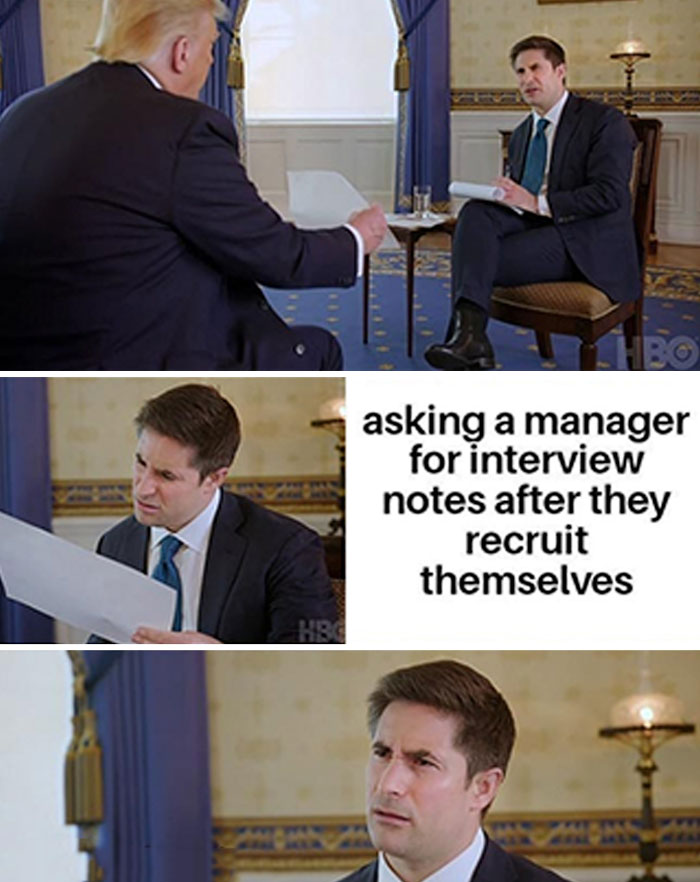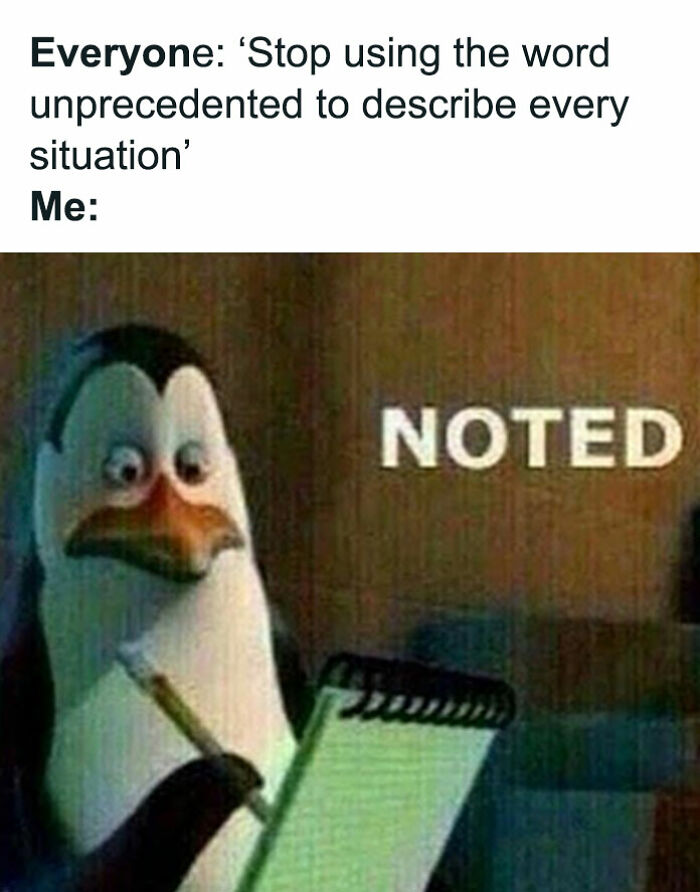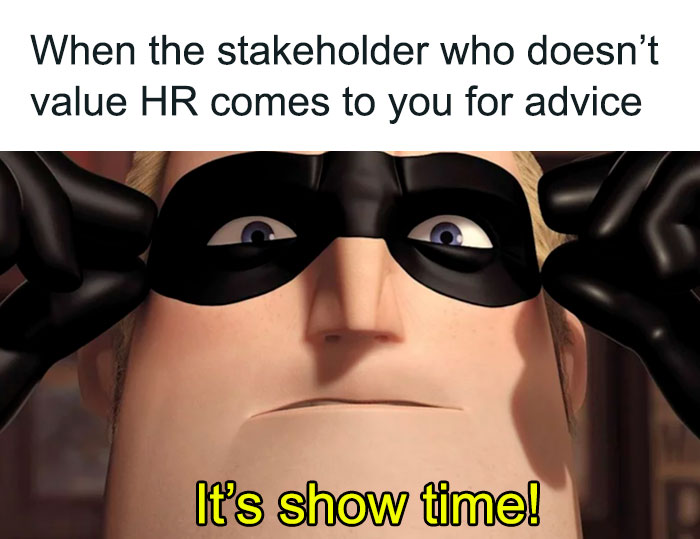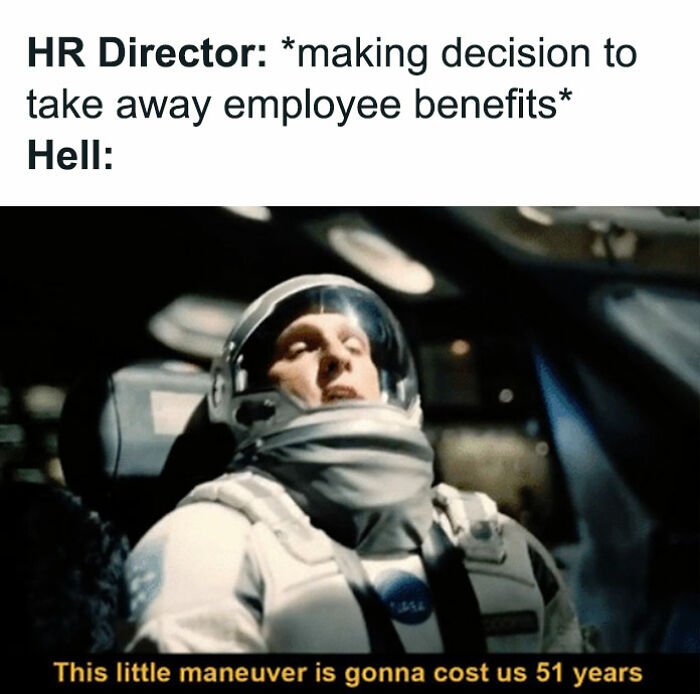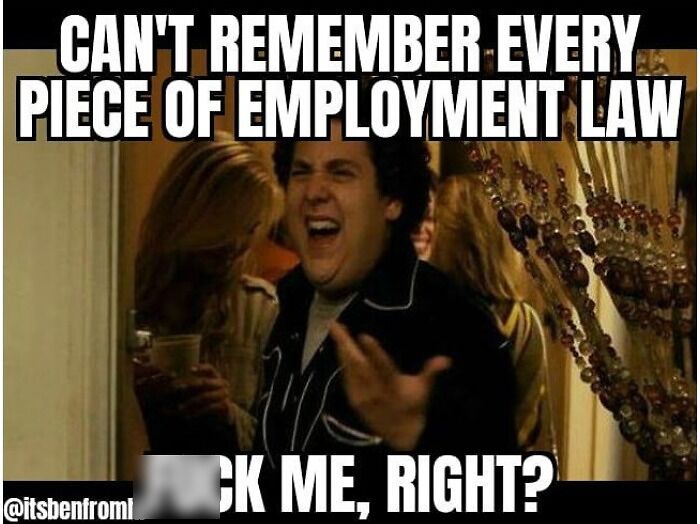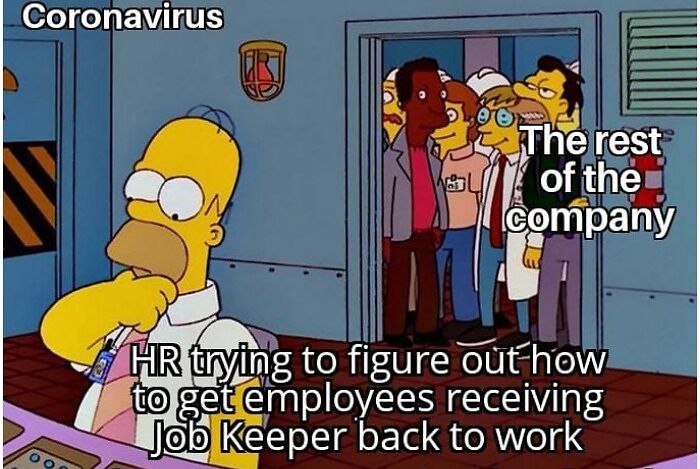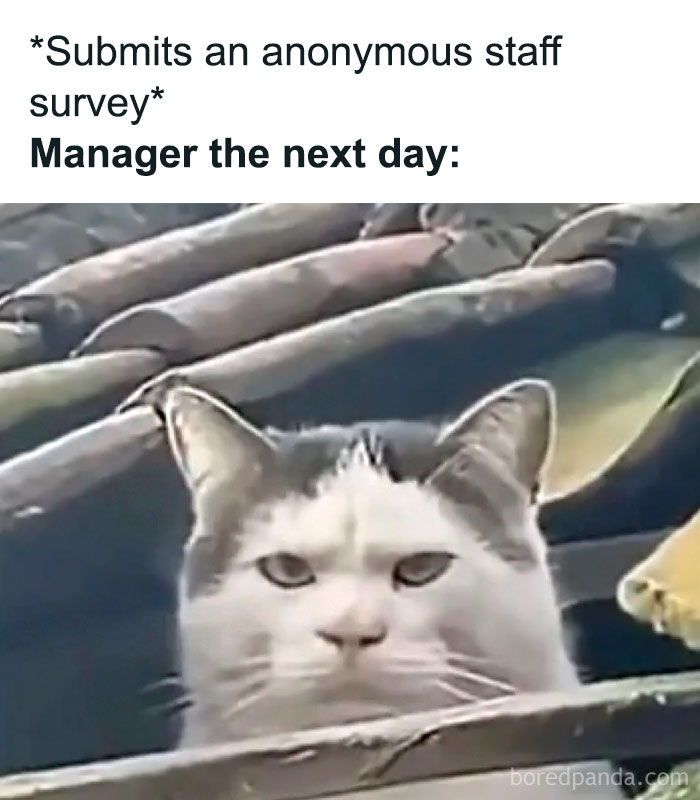Human resources (HR) is an important part of an organization, as it deals with the management of people and their relationships within (and with) the company. HR hires employees, manages their benefits and compensation, and strives to create a positive and productive work environment, not to mention ensuring that the business is in compliance with labor laws, and so on.
If that sounds like a lot, well, it is. Such complex responsibilities require loads of energy and don't always go according to plan. So to get a deeper understanding of the sector, let's see what its specialists have to say. There's an Instagram account called 'It's Ben from HR' run by, surprise, Ben who has been working in the industry, where he vents away his troubles using memes. Not only are they entertaining, but also vividly depict the stuff HR folks deal with on a daily basis. Have a look!
This post may include affiliate links.
According to management academic and author Peter Cappelli, modern HR was born in a leadership void.
After World War II, the US suffered a talent shortage unlike anything since. Many of the men (it was always men) who might have gone into business had fought instead. The fact that talent development had received little or no attention during the Depression didn't help either. The postwar question "What happens if the boss gets hit by a bus?" pointed to a huge concern. About one-third of executives died in office—many of them from heart attacks—and no one was around to take their place. A lot of small companies went out of business, and many big ones had to be sold.
There’s always one person who uses any meeting as a “profile raising” exercise. Often they have nothing to say and merely repeat someone’s previous point starting with “I agree with X - we really should provide more funding for Y” etc. There should be a system of fines/electric shocks in place for such arseheads.
This was basically what it was like at my last job. "We're hiring for a Team Leader position. All can apply." Yet they already decided who they wanted to promote long ago.
Change was needed and it brought in practices such as coaching, developmental assignments, job rotation, 360-degree feedback, assessment centers, high-potential tracks, and succession plans.
"They sound routine now, but they were revolutionary then," Cappelli wrote in Harvard Business Review. "And they arose from an urgent need to develop and retain talent in the 1950s."
"In that 'gray flannel suit' era, 90% of positions (and virtually all those in the top ranks) were filled from within—and 96% of large companies dedicated an entire department to planning for workforce needs," the academic explained.
"Those numbers reflect an intense commitment to development, which paid large dividends. HR was a powerful function, voted the most glamorous area in business by executives."
Of course, things have changed a lot since then. "Only a third or so of today's hires are internal. Companies engage executive search firms to fill most senior-level vacancies," Cappelli said.
"One in four CEOs comes from the outside. And companies spend less time and effort than they used to map out the talent they'll need in the years to come: By the mid-2000s only a third were doing any planning in this area."
Depends on the company. I've had district and state managers joking about making the Christmas hires want to kill themselves. My district manager wasn't there, but apparently hadn't thought it important enough to inform his boss that I had just lost a employee/colleague, and someone who I had known outside of work prior, to suicide a little over a week prior. Same district manager thought that a day and a half off from work was too much time away from work. The only other person who knew, sat there smiling at me while I'm trying not to have a breakdown.
This happened because of the economic slowdown of the 1970s. It practically eliminated labor shortages, and business leaders began dismantling those postwar programs designed to identify and develop good managers and workers.
"Corporations that held on to them, such as GE, were the exception," Cappelli said. "New companies, particularly in tech, could hire all the executives they needed when—thanks to layoffs and stalled advancement—people left the great organizations."
Microsoft became the largest company in the world in terms of market capitalization, with virtually no investment in developing management skills, and others followed its example. Why should someone train people when their competitors are willing to do it for them?
But while supervisors spent less and less time on their direct reports and had too many people under them to manage everyone carefully, employees weren't getting the investment and attention they needed to grow. "Even HR's brief resurgence during the dot-com boom ... was limited to hiring and retention," Cappelli added.
At the same time, more and more tasks that had traditionally been performed by HR (from hiring to development to compensation decisions) were pushed onto line managers, on top of their other responsibilities.
Getting drunk with your manager is a very bad idea. In Vino Veritas and all that 😉
And that's pretty much been the case ever since. "HR is now in the position of trying to get those beleaguered managers to follow procedures and practices without having any direct power over them. This is euphemistically called 'managing with ambiguous authority,' but to those on the receiving end, it feels like nagging and meddling," Cappelli concluded.
Happened to me last year. I work on a 2nd floor dept. Downstairs someone whined to HR that I was rude and making a customer wait for something idk. they had no details, no concrete date, nothing but a spineless complaint. Still got told about it.
In its State of the Global Workplace: 2022 Report, Gallup found that, along with dissatisfaction, workers are experiencing staggering rates of both disengagement and unhappiness. Sixty percent of people reported being emotionally detached at work and 19% as being miserable. Only 33% reported feeling engaged — and that is lower than in 2020.
In the U.S. specifically, 50% of workers reported feeling stressed at their jobs on a daily basis, 41% as being worried, 22% as sad, and 18% as angry.
Beyond unfair treatment at work, job dissatisfaction and burnout correlate most highly with unmanageable workloads, unclear communication from managers, lack of manager support, and unreasonable time pressure.
While HR can't solve all of these issues alone, it facilitates the much-needed superior-subordinate communication that often becomes problematic in times of despair.
Unions are just about the only reason we have decent working conditions at all. There are some non union companies who treat their employees well, but they tend to be in the minority, and if you get treated well, it's because they want to, not because they have to.
More like when you complain to HR and they do everything to defend the company, including lying to your face about you being "satisfied" with the results when they haven't given you any.
They're not that hard. Unless you're asking about a particular single line of expenses titled miscellaneous, despite every single possible expenditure being itemised separately. Then apparently DM and state managers who have been with the company for the 25 years that it's existed, will feign complete ignorance, and respond with "I never thought to ask"...
I had a coworker come into the office and first words out of his mouth were "what do you call an Irishman that.." I was surprised by just how many people yelled "STOP" all at once. I'll never know what that Irishman was called.
If I hear inappropriate conversation, you can bet your annual salary that I will join them.
Amazing how many employers do major layoffs just before the holidays. Merry Christmas and have a happy unemployment
No they don't, only a*s-kissers will be appreciated, actual work have nothing to do with that.
I mean, HR is very important, but when it gets too important it is a symptom of a falling company.
Some of the HR people at my jobs didn't care about those pesky laws. Who signs their paychecks? Not the workers.
I think they mean something to anyone who works in an office
Load More Replies...Thanks for the HR insider humor. Looking forward to “jokes told in the Lubyanka break room” next.
We just talked about this at dinner last night... never trust HR一they are not your friends. They only have the companies best interests in mind. Nothing is anonymous, they will tell the other person it was you that said this and in the end you will be the one in trouble.
I think they mean something to anyone who works in an office
Load More Replies...Thanks for the HR insider humor. Looking forward to “jokes told in the Lubyanka break room” next.
We just talked about this at dinner last night... never trust HR一they are not your friends. They only have the companies best interests in mind. Nothing is anonymous, they will tell the other person it was you that said this and in the end you will be the one in trouble.

 Dark Mode
Dark Mode  No fees, cancel anytime
No fees, cancel anytime 




